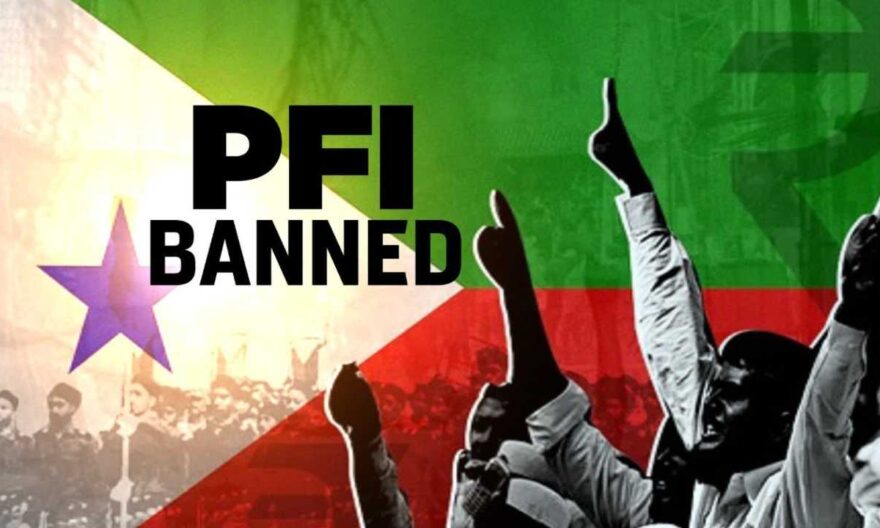
The Popular Front of India (PFI) has moved the Supreme Court challenging an Unlawful Activities (Prevention) Act (UAPA) tribunal’s confirmation of the five-year ban imposed by the central government.
The matter was scheduled for a hearing before a bench of Justices Aniruddha Bose and Bela M Trivedi, but it was adjourned as the petitioner had requested an adjournment through a circulated letter.
In its petition, the PFI has challenged the UAPA tribunal’s March 21 order, which upheld the central government’s decision from September 27, 2022. The government had banned the PFI for a five-year period, citing its alleged connections with global terrorist organizations such as ISIS and its efforts to disseminate communal hatred in the country.
The government had officially declared the PFI, along with its associates, affiliates, and fronts, including Rehab India Foundation (RIF), Campus Front of India (CFI), All India Imams Council (AIIC), National Confederation of Human Rights Organization (NCHRO), National Women’s Front, Junior Front, Empower India Foundation, and Rehab Foundation, Kerala, as an “unlawful association.” The notification, under the UAPA, stated that it would be effective for a five-year period from the date of its publication in the official gazette, subject to any orders made under section 4 of the UAPA.
In September of the previous year, over 150 individuals allegedly linked to the PFI were detained or arrested in raids conducted across seven states. An extensive nationwide crackdown by government agencies on this 16-year-old organization resulted in the arrest of over a hundred of its activists and the seizure of several dozen properties.
The Ministry of Home Affairs (MHA) notification had mentioned that some of the PFI’s founding members were former leaders of the Students Islamic Movement of India (SIMI), and the PFI had connections with the proscribed organization, Jamaat-ul-Mujahideen Bangladesh (JMB). Both JMB and SIMI are banned organizations. The notification also highlighted several instances of international linkages between the PFI and global terrorist groups such as the Islamic State of Iraq and Syria (ISIS).
According to the notification, the PFI, its associates, affiliates, or fronts have allegedly been working covertly to promote the radicalization of a particular community by fostering a sense of insecurity in the country. This assertion was supported by evidence that some PFI members had reportedly joined international terrorist organizations.




